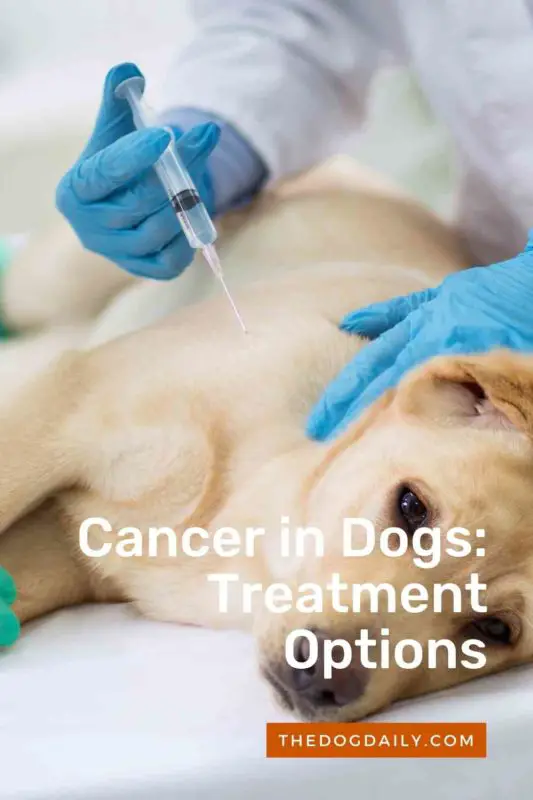What are the Treatments for Dog Cancer?
Most veterinary oncologists (specialists in treating cancer in companion animals) agree that while improvements have been made in all areas of cancer treatment, the most significant progress has been improving their clients’ access to that treatment. “Availability is the biggest advance in the last ten years,” says David Vail, DVM, DACVIM/Oncology, and a former chairman of the Scientific Advisory Board for the Morris Animal Foundation.
Veterinarians refer to a triad of cancer treatment: surgery, radiation, and chemotherapy. If your dog is diagnosed with cancer, your veterinarian will most likely discuss one or more of these treatments with you, depending on the type of cancer.
-
Surgery for Dog Cancer
According to Vail, surgery is still the number one option. “Far and away, surgery still cures the majority of patients,” he says. “If you can catch it early enough and remove the primary tumor, that is still ideal.”
-
Radiation Therapy in Dogs
Radiation therapy is the second most often used form of treatment. According to Vail, the number of radiation therapy facilities has drastically increased in the last ten years, increasing your chances of being close to one. “There are five times as many radiation facilities as when I started in cancer treatment ten years ago,” he says. “That’s made a huge difference.”
-
Chemotherapy in Dogs
Chemotherapy, generally used when cancer has already spread through the body or when a tumor is located in an inoperable place (such as in the heart), was administered only by certified oncologists, making it difficult for pet owners to get treatment for their dogs. However, says Philip Bergman, DVM, MS, Ph.D., head of the Donaldson-Atwood Cancer Clinic and the Flaherty Comparative Oncology Laboratory at the Animal Medical Center, that has now changed, with more and more general practitioners administering chemotherapy. Bergman himself is one of the medical directors of a brand-new company, Oncura Partners, which partners veterinarians with oncologists. Veterinarians can consult on-line with an oncologist, receive recommendations and protocols, and even get the chemotherapy treatments to administer themselves.
Dog Owner’s Role in Treating Cancer in Dogs
While exciting advances have been made in newer therapies for cancer, including immunotherapy and targeted molecular therapy, Vail and Bergman agree that knowledge and access are the essential ingredients for successfully treating cancer. “Our general practitioners are getting more and more well-versed in veterinary oncology,” says Vail. He encourages pet owners to discuss their dog’s treatment with their veterinarian in as much detail as possible, including any alternative therapies you may be giving the
dog. “Some [alternative therapies] have proven roles,” he says. “[Pet owners] should not feel embarrassed or uncomfortable talking about it.” However, because some alternative medicine, such as echinacea, can contradict chemotherapy or radiation treatments, your veterinarian needs to know what you may be giving your dog.
“Information is key,” says Bergman. “We share with [owners] side effects, cost, potential benefit. By knowing all those things, they can come to some level of understanding about what is best for them and their pets.” Ultimately, he says, “We try our best not to decide for them. They know their pet better than anyone else.”
Article written by Author: Marcella Durand

